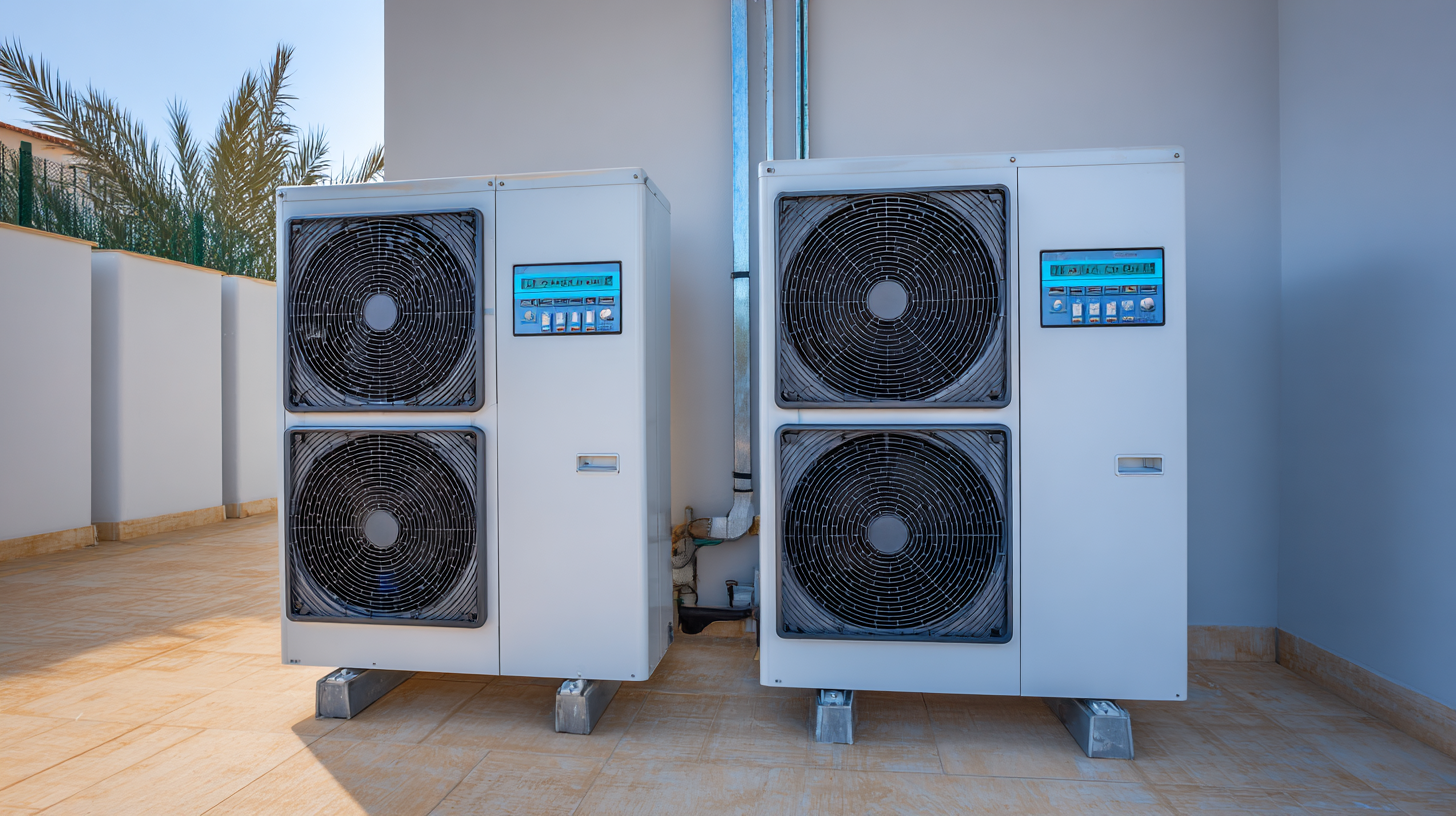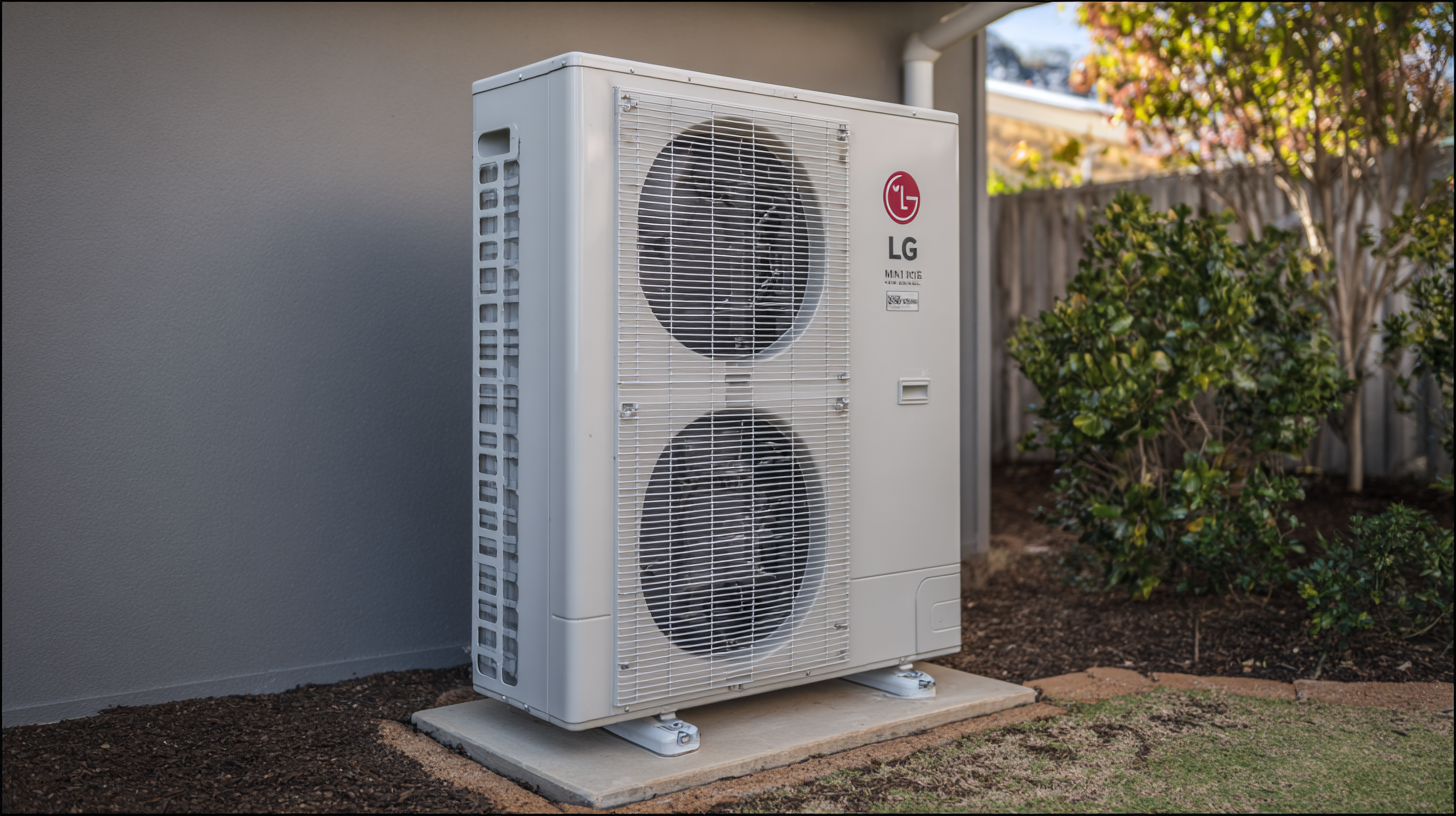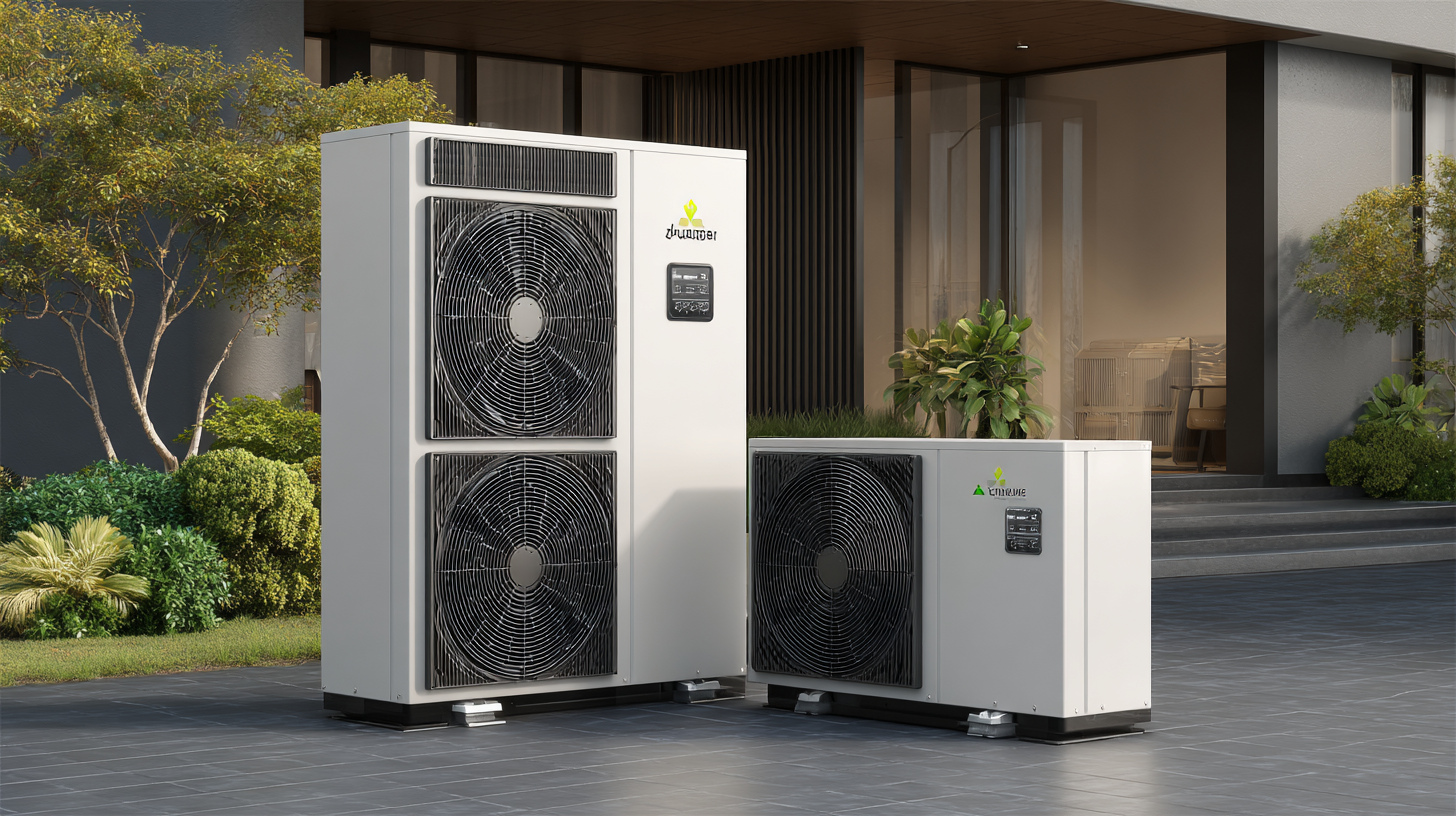Leave Your Message
In an era where energy efficiency is paramount, the demand for reliable heating and cooling solutions has skyrocketed. Among the leading technologies in this realm, the Inverter Heat Pump stands out for its exceptional performance and energy-saving capabilities. This blog delves into a detailed comparison of the best inverter heat pumps available on the market, evaluating their efficiency, durability, and overall performance. As we explore these state-of-the-art systems crafted in world-class Chinese factories, we will highlight how these products not only meet but exceed industry standards, ensuring homeowners enjoy optimal comfort while significantly reducing their energy bills. Join us as we uncover the most effective inverter heat pumps that combine advanced technology with environmentally friendly solutions, setting a new benchmark in energy efficiency.

Inverter heat pumps are revolutionizing energy efficiency in heating and cooling systems. Unlike traditional heat pumps, inverter models are equipped with variable-speed compressors that adjust their operation based on the required temperature. This technology allows for precise control over energy consumption and can significantly reduce electricity bills. By modulating the compressor speed, inverter heat pumps maintain a consistent indoor temperature while using less energy, making them an environmentally friendly choice for homeowners.
Key features of inverter heat pumps include advanced inverter technology, which enables them to operate quietly and reduce wear and tear on components. Another important aspect is their dual-purpose functionality; they can efficiently heat a space in winter and cool it during summer. Furthermore, many inverter heat pumps come with smart connectivity options, allowing users to control them via mobile apps or smart home systems. This integration not only enhances convenience but also helps in monitoring energy use and optimizing performance, making inverter heat pumps an intelligent investment for sustainable living.
When evaluating the energy efficiency of inverter heat pumps, one must closely examine the seasonal energy efficiency ratio (SEER) and coefficient of performance (COP) ratings. According to the U.S. Department of Energy, a higher SEER rating indicates greater efficiency, typically measured in cooling output versus energy consumed. Leading inverter heat pump models have achieved SEER ratings upwards of 20, far exceeding the minimum standard of 14. By utilizing variable speed technology, these systems adjust their output to match specific heating and cooling demands, resulting in significant energy savings.
In terms of heating efficiency, the COP is a crucial metric to consider. Recent industry reports, such as those published by the Air-Conditioning, Heating, and Refrigeration Institute (AHRI), show that the most efficient inverter heat pumps boast COP values greater than 4.0. This means they can produce over four units of heat for every unit of electricity consumed. Notably, models equipped with advanced inverter technology can maintain these high COP ratings even in extremely low outdoor temperatures, showcasing their versatility and performance across different climate conditions. This comparative analysis underscores the importance of selecting inverter heat pumps not only for their initial cost but also for their long-term energy savings and performance efficiencies.

When evaluating inverter heat pumps for energy efficiency and performance, it's crucial to focus on key performance metrics that define their effectiveness. One of the most important indicators is the Seasonal Energy Efficiency Ratio (SEER), which measures the cooling output divided by the energy consumed over a typical season. A higher SEER rating indicates better energy efficiency, helping homeowners understand potential savings on their energy bills.
Another critical metric is the Heating Seasonal Performance Factor (HSPF), which measures the heating output of a heat pump per unit of electricity consumed during the heating season. A higher HSPF suggests greater efficiency in heat delivery. Additionally, consider the coefficient of performance (COP), which reflects the pump's efficiency at specific operating conditions. This metric provides insight into how well the heat pump can convert electricity into heating or cooling power, making it a vital factor in selecting the right unit for your home.
Lastly, noise levels and temperature control capabilities should not be overlooked. Look for models with lower decibel ratings to ensure comfort, especially in residential areas. Advanced features like variable-speed compressors deliver precise temperature control, contributing to both performance and energy savings. By assessing these performance metrics, you can make an informed choice that maximizes efficiency and comfort in your home.
| Model | Heating Efficiency (COP) | Cooling Efficiency (EER) | Noise Level (dB) | Operating Range (°F) | Warranty (Years) |
|---|---|---|---|---|---|
| Model A | 4.2 | 14.5 | 45 | -5 to 110 | 10 |
| Model B | 4.0 | 13.8 | 50 | -10 to 105 | 12 |
| Model C | 4.5 | 15.0 | 40 | 0 to 110 | 15 |
| Model D | 3.8 | 12.0 | 55 | -5 to 100 | 8 |
When considering the suitability of inverter heat pumps for different climates, it’s essential to recognize their adaptability and efficiency in varied conditions. In warm climates, these heat pumps excel by providing consistent cooling while minimizing energy consumption. With their ability to modulate compressor speed, inverter heat pumps maintain comfortable indoor temperatures even during peak heat, ensuring that homes remain cool and energy costs stay low.

Conversely, in colder climates, inverter heat pumps can still perform remarkably well. Many models are designed to extract heat from the outdoor air, even at sub-zero temperatures. This capability allows them to function efficiently in winter months while significantly reducing reliance on auxiliary heating systems. As a result, homeowners in colder regions can enjoy both comfort and savings, making inverter heat pumps a versatile choice regardless of location. This flexibility highlights their growing popularity as a sustainable HVAC solution across diverse environmental conditions.
When considering energy-efficient heating and cooling solutions,
inverter heat pumps stand out for their remarkable cost-effectiveness.
Unlike traditional systems that operate at a fixed speed, inverter heat pumps
modulate their compressor speed according to the heating or cooling demand.
This variation not only ensures enhanced comfort but also significantly reduces energy consumption.
As a result, homeowners can expect lower utility bills, making inverter heat pumps
an attractive long-term investment.
In addition to immediate savings, the longevity and durability of inverter heat pumps
contribute to their cost-effectiveness. By avoiding the wear and tear seen in traditional systems,
which frequently cycle on and off, inverter models tend to outlast their counterparts.
Over their lifespan, which can exceed 15 years with proper maintenance,
the accumulated savings on energy costs can be substantial. Investing in an inverter heat pump
can not only enhance your home's comfort but also yield considerable financial benefits,
making it a smart choice for energy-conscious consumers.
